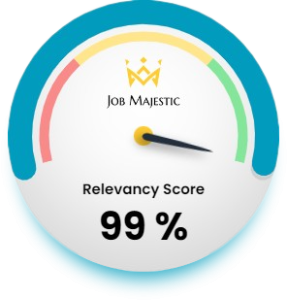In today’s digital-driven world, job portals have transformed the way people search for jobs and how companies find the right talent. Job portals offer a fast, efficient, and accessible platform that connects employers and job seekers in real-time, in contrast to traditional job posting advertisements in newspapers or physical career fairs. Whether you’re an employer looking to fill a vacancy or a job seeker searching for the next career move, job portals provide significant advantages that can simplify and improve the recruitment process.
This article will highlight the key benefits of using job portals for both employers and job seekers.
1. Benefits of Job Portals for Employers
a) Access to a Wider Talent Pool
One of the biggest advantages for employers is the ability to reach a large number of potential candidates. Job portals are typically used by thousands, sometimes millions, of active job seekers from various industries and levels of experience.
Key points:
- Employers can source candidates nationwide or even globally.
- It increases the chance of finding the right fit for specialized roles.
- Employers have access to a wide range of talent, including fresh graduates and seasoned professionals.
b) Faster Recruitment Process
Job portals streamline the hiring process by allowing employers to post jobs instantly and receive applications quickly.
Key points:
- Automated notifications inform employers of new applicants.
- Sorting tools help filter candidates based on skills, experience, and qualifications.
- Job portals save time compared to traditional hiring methods.
c) Cost-Effective Hiring Solutions
Compared to expensive print advertisements or third-party recruitment agencies, many job portals offer free job posting options or affordable packages.
Key points:
- Lower recruitment costs, especially among SMEs.
- Some job portals offer additional features such as resume databases and employer branding without extra fees.
d) Detailed Candidate Profiles and Filtering Options
Employers can effectively shortlist candidates by using job portals’ advanced filtering features.
Key points:
- Employers can filter applicants by location, education, years of experience, and specific skills.
- Viewing full candidate profiles, including uploaded CVs and portfolios, helps make better hiring decisions.
e) Employer Branding Opportunities
Job portals often allow companies to build branded employer pages.
Key points:
- Employers can highlight their company culture, mission, and employee testimonials.
- A strong employer brand can attract higher-quality candidates who align with the company’s values.

2. Benefits of Job Portals for Job Seekers
a) Easy Access to Thousands of Job Listings
Job seekers benefit from the vast variety of jobs posted daily across different industries, locations, and positions.
Key points:
- Job seekers can search for jobs that match their qualifications and preferences.
- Job portals are accessible 24/7, providing flexibility to search at any time.
b) Time-Saving and Convenient
Instead of manually visiting company websites or newspapers, job seekers can apply for multiple positions from a single platform.
Key points:
- One-time resume uploads and profile setups streamline the application process.
- Email alerts and push notifications ensure job seekers never miss new opportunities.
c) Personalised Job Recommendations
Most modern job portals use algorithms to suggest suitable jobs based on a job seeker’s profile, skills, and search history.
Key points:
- Increases your chances of finding relevant job matches quickly.
- Can save job seekers from scrolling through irrelevant listings.
d) Enhanced Visibility to Employers
By creating profiles on job portals, job seekers can be discovered by recruiters actively searching the resume database.
Key points:
- Passive job seekers can still be approached with attractive offers.
- Increased exposure can lead to better career opportunities.
e) Additional Career Resources
Many job portals provide valuable resources such as:
- Resume writing tips
- Interview preparation guides
- Career growth articles
- Salary comparison tools
These resources help job seekers better prepare for their job search and long-term career development.

3. Benefits for Both Employers and Job Seekers
a) Real-Time Communication
Some job portals offer direct messaging features that allow employers and job seekers to communicate instantly.
Key points:
- Reduces waiting time for interview arrangements or clarification on job details.
- Improves the speed of decision-making for both parties.
b) Transparent Application Tracking
Both companies and job seekers can keep track of the progress of their applications and the hiring process.
Key points:
- Job seekers receive timely updates on their applications.
- Employers can effectively organize and manage applications.
c) Flexibility and Mobile Access
Most job portals today are mobile-friendly or offer dedicated mobile apps.
Key points:
- Employers can review applications and job seekers can apply for jobs on the go.
- Ensure the recruitment process is more flexible and accessible for everyone.
4. Key Features that Enhance Job Portal Effectiveness
To maximize the benefits of using a job portal, both employers and job seekers should take advantage of these features:
- Advanced Search Filters: Helps narrow down results quickly.
- Resume Database Access: Allows employers to search and approach suitable candidates directly.
- Employer Reviews: Enables job seekers to assess company culture and reputation before applying.
- Automated Alerts: Keeps both sides informed of new opportunities and applications.
- Application Tracking Systems (ATS): Helps employers manage multiple job postings efficiently.

5. How to Choose the Right Job Portal
Whether you’re an employer or a job seeker, choosing the right job portal is crucial to ensure you get the best results.
Employers should look for:
- Free or affordable job posting options
- A large and active user base
- Resume database access
- Easy-to-use dashboard and filtering tools
- Employer branding opportunities
Job seekers should look for:
- User-friendly search functions
- Quality and diversity of job postings
- Verified employer profiles
- Additional career resources and support
- Timely notifications and application tracking
Conclusion
Job portals have become an essential part of modern recruitment. For employers, they offer wide access to talent, faster hiring processes, and cost-effective recruitment solutions. For job seekers, job portals provide easy access to thousands of job opportunities, real-time updates, and helpful career resources.
By leveraging the right job portal, both employers and job seekers can save time, reduce effort, and improve the overall success rate of their recruitment and job search journeys. Whether you’re looking to fill a key position quickly or searching for your dream job, a job portal is one of the most powerful tools available today.
![]()






